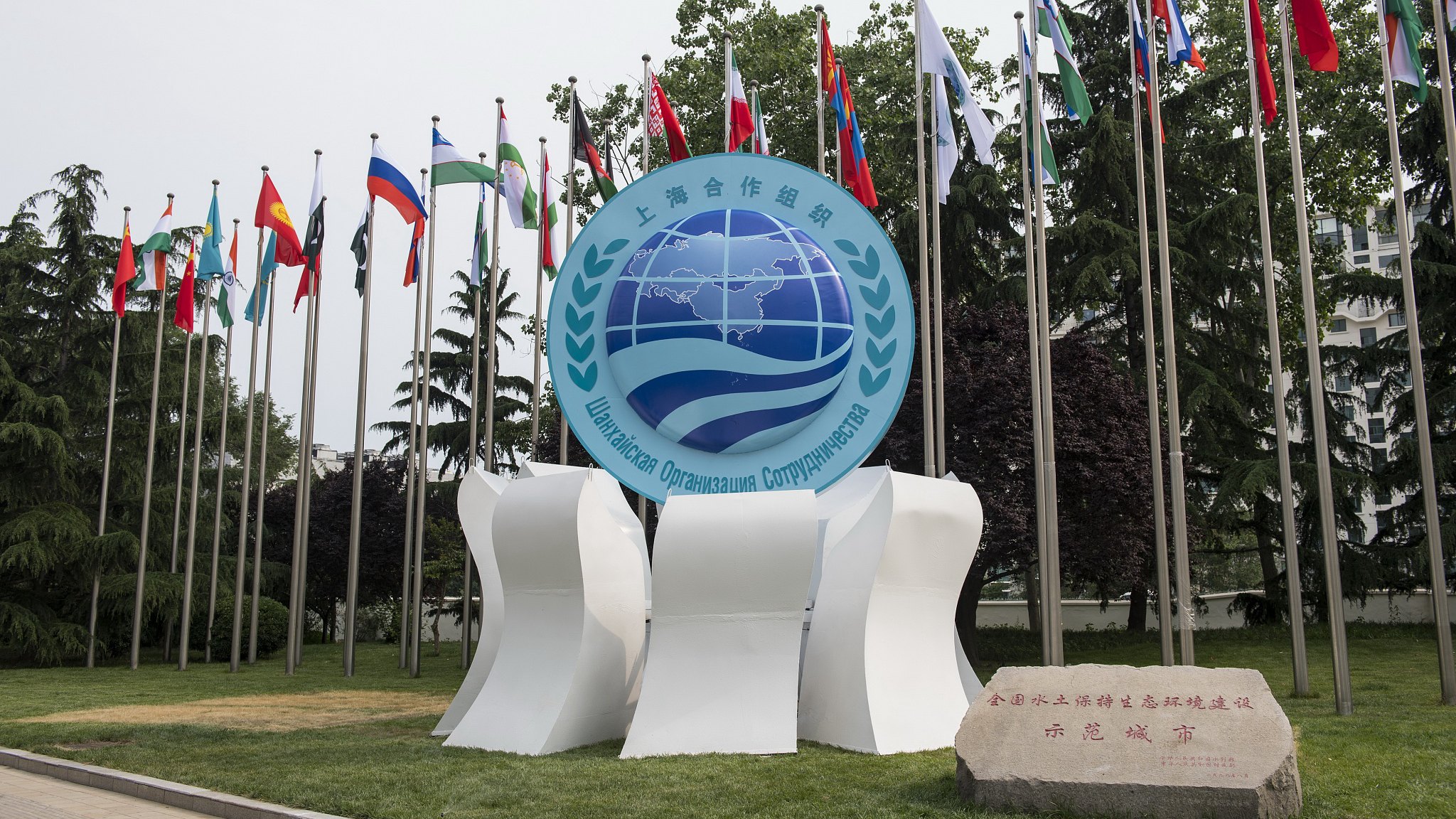In seeking to fully ascend as a member of the “Shanghai Organization” Iran is aiming to circumvent compliance with the Financial Action Task Force (FATF), diminish reliance on the benefits derived from the nuclear agreement with Western nations, diversify diplomatic ties away from the West, and enhance the volume of trade with member countries within the organization.
Kayhan newspaper: Without Perjam (the nuclear deal) and the FATF, Iran has become an official member of the “Shanghai.”
The Shanghai Cooperation Organization convened a virtual summit on July 4, during which the leaders of its member states officially announced Iran’s accession as a full member. President Ibrahim Raisi of Iran delivered a speech at the summit expressing his belief that membership in the organization will afford Iran the necessary conditions to bolster security, safeguard sovereignty, and foster sustainable economic development. Iran’s inclusion as the ninth member of the organization follows its previous status as an observer since 2005. Hence, Iran’s request for full membership, initially submitted in 2008, was initiated at the summit held by the organization’s leaders in Dushanbe in September 2021.
Motives in Becoming a Member
Iran’s desire to become a permanent member of the organization stems from the following motives:
- Diversifying international relations: Iran’s inclination to join the organization signifies a shift in its foreign policy approach over the past decade. Under the leadership of former Iranian President Hassan Rouhani, it became evident that Iran heavily relied on its relations with Western nations. This reliance further intensified following the announcement of the nuclear agreement on July 14, 2015, and the subsequent lifting of international sanctions imposed on Iran. Consequently, Iran embarked on enhancing its ties with numerous Western countries. Rouhani’s visits to prominent European capitals such as Paris, Rome, and Vienna, along with the successful negotiation of major contracts with American and European corporations like “Boeing” and “Airbus,” exemplify this trend.
However, following the American withdrawal from the nuclear agreement on May 8, 2018, and the subsequent assassination of Qassim Soleimani, the former commander of the Quds Force of the Revolutionary Guards, on January 3, 2020, during a military operation conducted by the United States of America, it became evident that the emphasis on fostering relations with Western nations was significantly diminishing. Instead, there was a noticeable shift towards bolstering ties with the “East.” This shift gained momentum after the inauguration of President Ibrahim Raisi in early August 2021, as Iran promptly activated its request for full membership, merely a month after President Raisi assumed office.
- Iran’s non-compliance with money laundering agreements is rooted in its belief that complete accession to the organization would require accepting certain conditions imposed by Western nations. These conditions aim to facilitate Iran’s integration into the global economic system and enhance economic cooperation. However, Iran has been particularly resistant to joining the Financial Action Task Force (FATF), an organization dedicated to combating money laundering and terrorism financing. Despite the efforts exerted by former President Hassan Rouhani’s government to secure the Islamic Consultative Assembly’s approval for Iran’s membership in FATF, influential institutions within the Iranian system, such as the Shura Council, the Guardian Council, and the Expediency Discernment Council, have consistently rejected this proposition. The reluctance of these institutions to become members of the organization stems from their apprehension that doing so would impose limitations on Iran’s provision of support to armed militias that are loyal to it in certain crisis-ridden nations within the region. It is worth noting that some of these militias have been designated as terrorist organizations by certain Western countries. Consequently, the organization has included Iran in its list of prohibited entities multiple times, with the most recent inclusion occurring on June 23.
Consequently, numerous factions within Iran perceive its accession to the Shanghai Organization as a setback to the endeavors undertaken by various domestic and international powers to compel Iran to join the organization. This accession could potentially curtail Iran’s external activities, particularly its attempts to expand its influence in crisis-ridden nations.
- Despite Iran’s ongoing efforts to negotiate with the United States of America to establish a new deal that would oversee the implementation of a nuclear agreement, this does not undermine the fact that Iran does not place great emphasis on this agreement.
According to Iran’s perspective, even if a new agreement is reached with the international community, this does not solve all of Iran’s differences with Western nations, particularly those that aim to pressure Iran to alter its policies on other issues, such as Iran’s ballistic missile program and its presence in regional countries.
Iran’s confidence in the potential benefits derived from enhancing ties with Western nations has significantly diminished. This decline can be attributed not only to the US’ withdrawal from the nuclear agreement but also to Iran’s unwavering commitment to a hardline stance. This approach is rooted in the belief that Western countries are seeking to exploit the recent protests that unfolded in Iran from mid-September and persisted for over five months. The objective behind this alleged exploitation was to undermine the existing regime and propagate disorder and instability within Iran.
- Iran views the Shanghai Organization as a significant platform for enhancing coordination with its member states on various regional matters of mutual interest, particularly the Afghan crisis. Iran sees that the motives behind the disorderly withdrawal of the US from Afghanistan was to shift the burden of the crisis and its consequences onto neighboring countries, notably Iran, China, and Russia. This is due to the existing disputes between the US and Iran, which include the faltering nuclear agreement with Iran, Iran’s missile program and Iran’s regional influence, the Taiwanese matter with China, and the Ukrainian war with Russia.
Conflicting Factions Within Iran
President Raisi’s administration has actively emphasized the numerous economic and strategic benefits that Iran will accrue upon its accession to the organization. This is particularly evident in the context of augmenting trade with member nations, amounting to $38.8 billion during the previous year (March 21, 2022 – March 20, 2023). However, despite these assertions, internal factions have expressed concerns regarding the ramifications of solely relying on this approach. These concerns stem from the fact that the lack of oversight on Iran’s financial situation was considered primary mechanism for addressing the longstanding economic crisis that has plagued the country, with government policies thus far proving ineffective in mitigating its repercussions.
Given these issues, for Iran to rely entirely on the “heading east” policy, disrupts Iran’s ability to balance its policies and this allows other countries, even those with strong relations with Iran such as China and Russia, to exert pressure on it in certain matters. Furthermore, the proposal put forth during the organization’s summit to conduct trade transactions using national currencies, thereby excluding the US dollar as an international currency in these transactions, serves as a means to manage Iran’s conflicts with the US.
In this particular context, Rafsanjani drafted an article in the esteemed “Etemad” newspaper, wherein he issued a cautionary statement regarding the potential adverse implications of relying on contractual agreements for local currency-based commercial transactions. The foremost concern highlighted in the article is with regards to the influx of substandard products at inflated prices, significantly impacting the Iranian economy.
Ongoing Pressures for the Foreseeable Future
Given the aforementioned circumstances, it can be argued that the ongoing discourse within Iran regarding the potential benefits of Iran’s membership in the Shanghai Organization will persist. This is particularly significant considering the concerted endeavors of all involved parties to politicize this decision, considering the prevailing political dynamics that anticipate a momentous occurrence, namely the upcoming elections of the Islamic Consultative Council scheduled for February of the forthcoming year.


